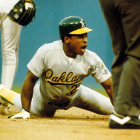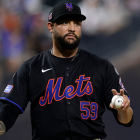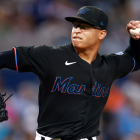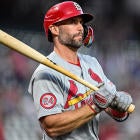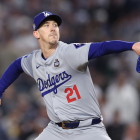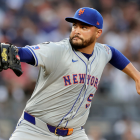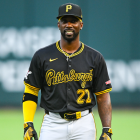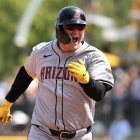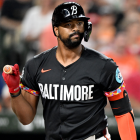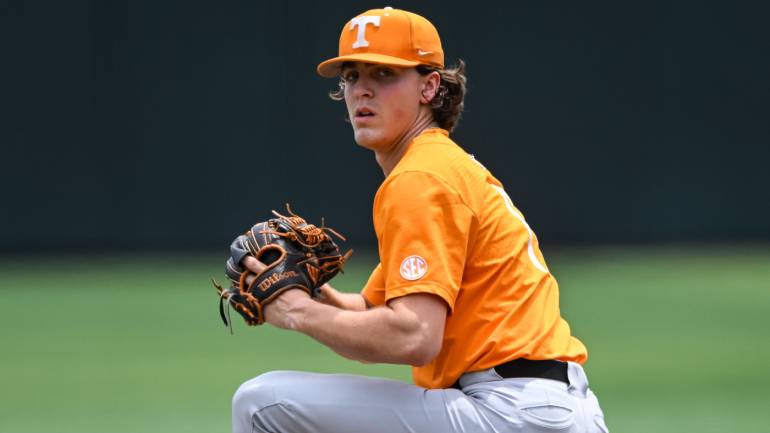
Major League Baseball's offseason means everyone is thinking about the future. In most cities, that means next season; in some, though, it means the bigger picture, the next three to five years. You're either selling wins or you're selling hope, the old saying goes. We here at CBS Sports like to provide as much hope as we can around this time of the winter by evaluating each team's farm system.
Of course, that doesn't mean every team has an equally good farm system -- some, as you'll find out throughout this process, are lacking in that respect. It does mean, nevertheless, that CBS Sports will be spending the next couple of months examining the top three prospects in each organization. We define "prospects" as retaining their rookie eligibility for the 2024 season, so if a young player is missing that's likely why.
These lists and evaluations are formed following conversations with scouts, analysts, and player development types. There's also firsthand evaluation and bias thrown into the mix. Keep in mind that player evaluation is a hard task, and it's fine if you disagree with the rankings. These are opinions, and they have no real bearing on the future. You can check out our winter top 25 list by clicking here.
With that in mind, let's get to it by dissecting the Colorado Rockies.
1. Adael Amador, SS (20 years old)
- The short version: Singles and walks all day, every day.
- MLB ETA: Late summer 2024
The switch-hitting Amador possesses an excellent feel for making contact and controlling the zone. Need evidence? He's walked 20 more times than he's struck out during his professional career. Amador has a flat swing that doesn't lend itself to big-time slugging production, but he has homered 27 times the last two seasons, nodding at his sneaky power. Amador does hit the ball into the earth a lot, with more than 55% of his batted balls last season being classified as grounders. He would've ranked near the top of the majors in that respect, alongside the likes of Tim Anderson, Christian Yelich, and William Contreras. (Clearly it's not necessarily a good or bad thing.) Defensively, Amador is likely to end up at the keystone, if only out of deference to the smooth-fielding Ezequiel Tovar. He should begin the season at Double-A, though we suspect he has a chance to finish it in the majors.
2. Chase Dollander, RHP (22 years old)
- The short version: Talented right-hander coming off a down draft year.
- MLB ETA: Late summer 2025
Dollander entered last spring regarded as the top pitcher in the class and a legitimate candidate to go No. 1 overall in the draft. He then had a rough season that saw him battle his fastball command throughout. (He also appeared to change grips on his well-regarded slider, for whatever reason.) There's still a lot to like about Dollander's game, and he was a justifiable selection by the Rockies at No. 9. Talent evaluators with other teams are concerned that Colorado won't be able to help him maximize his game. Should that prove to be correct, it'll be too bad. There's some tantalizing upside here.
3. Jordan Beck, OF (22 years old)
- The short version: Powerful corner-outfielder with hit-tool concerns.
- MLB ETA: Spring 2025
Beck reached Double-A and produced at a slightly above-average level there in his first full professional season. There's no doubting two aspects of his offensive game: he has the ability to drive balls out to the opposite field, and he's shown a willingness to take free passes (giving him the edge here over system mate Yanquiel Fernandez). The main drawback to Beck's skillset is his hit tool. His strikeout rate swelled from 20.8% in High-A to 31.8% in Double-A, and he's been prone to hitting a lot of pop-ups. That combination will restrict his ability to hit for average, putting more pressure on him continuing to bop and walk if he wants to become a big-league regular.










